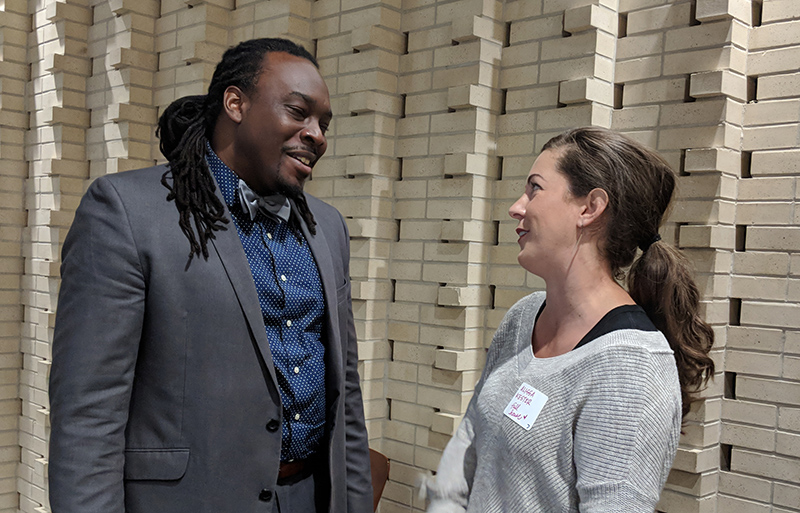Access and equity: A hard conversation that's harder to avoid
10/22/2018

By Zak Champagne, Director of Teacher Leadership
I have to admit it was hard to wake up before sunrise on a Saturday morning.
But this was no usual Saturday.
For more than a year, I’d been planning this day with the team at JPEF as a core component of the 2019 EDDYs Experience.
James E. Ford, the 2015 North Carolina Teacher of the Year, was coming to speak to the 2019 school-level Teachers of the Year.
I’d first heard James speak this summer in Las Vegas at the National Conference of Teachers of the Year with the five finalists for 2018 Duval County Teacher of the Year, part of JPEF’s EDDYs Experience. James blew us away inspiring and common-sense appeal to educate all of our students, no matter who they are or where they come from, as the foundation of our democratic society.
At JPEF, we believe that each and every student that walks into a Duval County classroom deserves a rigorous and high-quality educational experience. So we invited James to speak to our teachers.
The teachers, it turned out, were just as enthusiastic. More than 90 teachers joined us at 8:30 AM for a half-day professional learning experience.
“This is what dedication to Duval County’s students looks like!” Rachael Tutwiler Fortune, JPEF’s Interim President, told the crowd. “This really is the very definition of teacher leadership.”
James’s talk was titled “Deeply Rooted in Uneven Ground.” In less than an hour, he made the case for why teachers must bring the social context into their classrooms, to see students for who they are, whether they come from poverty, from undocumented immigrant families, from displaced, homeless families, from generations of people who have been discriminated against and disenfranchised on the basis of race, including in the educational system. He implored teachers to make their lessons relevant to the lives of students.
“This is not a partisan argument. This is a demographic reality,” James said. “This is the pluralistic society that reflects the globe. We say America is the greatest country in the world, so we shouldn’t be surprised that people want to come here.”
“Everything we love about America is lost if we don’t support young people across the lines of difference in pursuit of equality in education,” he continued.
After the talk, teachers joined with trained facilitators to break out into private conversations to discuss their own cultural identities and how teachers can promote access and equity in the classroom.
Will Smith, one of the Teacher of the Year finalists from last year, led a session on the roof garden of the Dupont Center. His group talked about how to deal with unconscious bias they may have in dealing with students on the basis of their appearance.
“Teachers have a lot of work to do on themselves,” he said. “We have to evaluate whether our negative and positive experiences are influencing our practice as teachers.”
“This is the most important topic we could have discussed,” said Alissa Kester, who said she hoped there would be many more opportunities to learn about access and equity with other teachers in Duval County.
“Our small groups scratched the surface of some issues, but we’d be doing a disservice to the topic if we didn’t continue to talk about solutions and to get teachers, students and parents on board with this type of learning,” she said.
At the end of the day, I asked teachers to continue their commitment to access and equity by writing themselves a letter that I’ll mail to them in two months. More than 60 participants did so.
I believe these teachers, while small in number, have huge potential to change the conversation in our schools. While these conversations are hard, it’s harder not to have them.
As teachers of the year, they have a voice. It’s their time to lead.